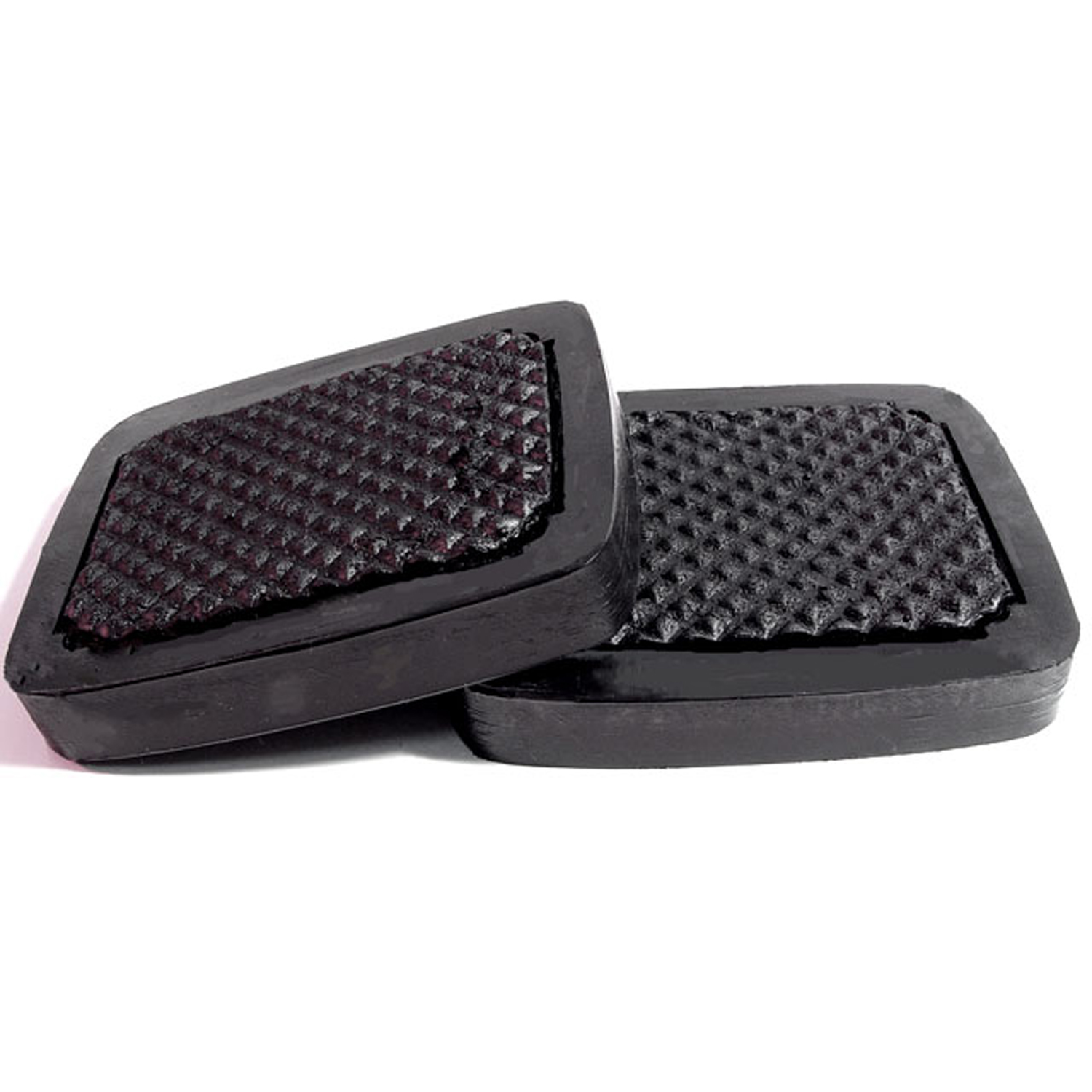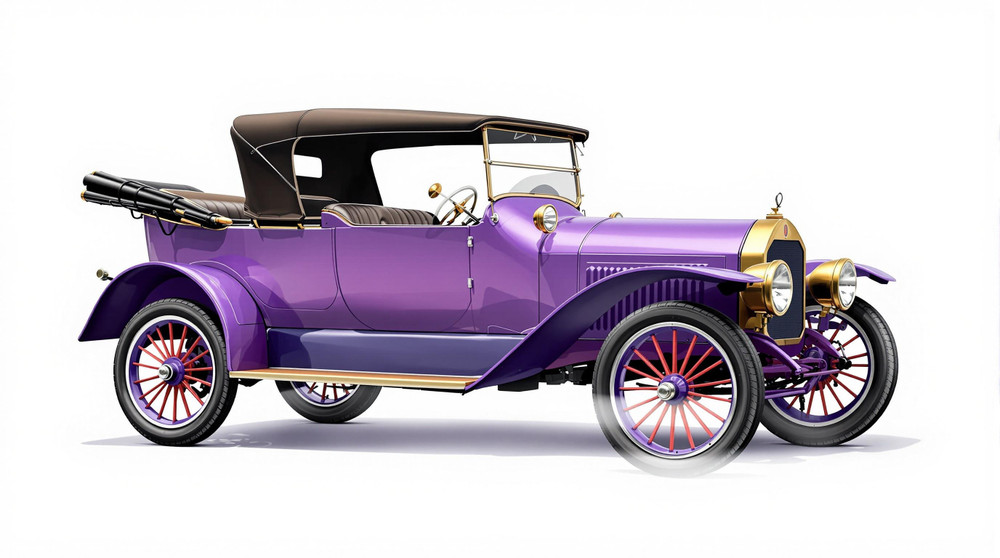Image of 1912 Buick Model 28, Note: These illustrations use artistic license and may differ from actual historical models.
Performance Metrics
Fundamental Metrics
Emotional Appeal
MMP Rating
| Engine Specifications | |
|---|---|
| Engine Options: | 4-cylinder, in-line |
| Displacement Range: | 318 cubic inches |
| Horsepower Range: | Estimated 30-40 HP |
| Torque: | Not available |
| Compression Ratio: | Not available |
| Ignition System: | Magneto ignition system |
| Cooling System: | Water-cooled |
| Performance Specifications | |
| 0-60 Time: | Not available |
| 1/4 Mile Time: | Not available |
| Top Speed: | 40-50 mph |
| Transmission and Drive | |
| Drive Type: | Rear-wheel drive |
| Transmission Type: | 3-speed manual |
| Fuel and Efficiency | |
| Fuel System Type: | Carburetor |
| MPG: | Not available |
| Dimensions and Brakes | |
| Brakes: | Mechanical drum brakes |
| Wheelbase: | 106 inches |
| Weight: | Estimated 1,800 lbs |
Note: Specifications for classic cars are given to the best of our ability, considering the limited and variant data available.
Unveiling the Elegance of the 1912 Buick Model 28
The dawn of the automotive era was marked by remarkable feats of engineering and design, one of which was the 1912 Buick Model 28. This vintage masterpiece emerged from the creative minds at Buick, a company that had already established itself as a cornerstone in American automobile manufacturing. The Model 28 not only reflected the burgeoning spirit of innovation but also stood as a testament to Buick's commitment to quality and performance. Among its many accolades, the Model 28 is celebrated for pioneering the use of electric headlights, a feature that would soon become standard across the industry.
Design and Innovation
The exterior of the 1912 Buick Model 28 exuded a charm that was both stately and forward-thinking. Its brass-accented radiator and gracefully curved fenders were hallmarks of early automotive elegance. Inside, passengers were greeted with an interior that showcased high-quality materials such as leather upholstery and polished wood trim, reflecting the luxury status of automobiles during this era. Technologically, the Model 28 was ahead of its time, boasting an advanced overhead valve engine—a rarity among its peers. Color options were limited in those days, but Buick's deep blues and blacks were popular choices that added to the vehicle's dignified appearance. The most iconic body style for the Model 28 was undoubtedly the touring car, a configuration that epitomized open-air motoring luxury.
Historical Significance
The 1912 Buick Model 28's impact on automotive design cannot be overstated. It set a new standard for what motorists expected from their vehicles in terms of performance and convenience features. Its electric headlights paved the way for safer nighttime driving and are just one example of how this model influenced future automotive designs.
Performance and Handling
In terms of performance, the Model 28 was no slouch for its time. With a top speed that could reach up to 60 miles per hour—a remarkable feat in 1912—the vehicle offered an exhilarating driving experience. Handling was as refined as could be expected from an early automobile; it navigated through various conditions with a sturdiness that reassured its drivers. The engine's purr was a symphony to motoring enthusiasts, while the ride quality provided an authentic sense of early twentieth-century travel.
Ownership Experience
Owners of the Model 28 typically used their vehicles for leisurely drives or as symbols of status. While not common as daily drivers by today's standards, they were reliable machines for their time. Maintenance required a hands-on approach, but most owners found upkeep manageable with some mechanical knowledge. The simplicity of its design made repairs relatively straightforward.
Fun Facts
The 1912 Buick Model 28 has its share of interesting trivia. For instance, it was part of an era when Buick was outselling Ford briefly before the advent of Ford's moving assembly line. Although not known for breaking speed records or endurance runs, it held its own in terms of sales success and customer satisfaction during its heyday.
Collector's Information
Today, finding a 1912 Buick Model 28 can be akin to uncovering a hidden gem. With production numbers estimated in the low thousands, survivors are rare and highly sought after by collectors. As for value range, pristine examples could fetch anywhere from $50,000 to well over $100,000 depending on provenance and condition. The market trend for such vehicles has generally seen appreciation over time due to their scarcity and historical importance.
Conclusion
The legacy of the 1912 Buick Model 28 is one steeped in innovation, luxury, and historical significance. It represents an era where every new automobile was a marvel of contemporary technology and craftsmanship—a true testament to Buick's pioneering spirit in early automotive history. As we reflect on this remarkable machine more than a century later, it remains an enduring symbol of America's automotive heritage.
1912 Buick Model 28 Catalog of Parts
 1912 Buick MODEL 28 Clutch and Brake Pedal Pads. 2-3/4" wide X 3-3/8" long-CB 12Clutch and Brake Pedal Pads. 2-3/4" wide X 3-3/8" long. Pair
1912 Buick MODEL 28 Clutch and Brake Pedal Pads. 2-3/4" wide X 3-3/8" long-CB 12Clutch and Brake Pedal Pads. 2-3/4" wide X 3-3/8" long. Pair 1912 Buick MODEL 28 Clutch and Brake Pedal Pads. 2-3/4" wide X 3-3/4" long-CB 13Clutch and Brake Pedal Pads. 2-3/4" wide X 3-3/4" long. Pair
1912 Buick MODEL 28 Clutch and Brake Pedal Pads. 2-3/4" wide X 3-3/4" long-CB 13Clutch and Brake Pedal Pads. 2-3/4" wide X 3-3/4" long. PairWhy Choose Metro?
For over 100 years, Metro Moulded Parts has been the pinnacle of quality in classic car restoration parts. Our commitment to precision and authenticity in every component ensures a perfect fit and an OEM-level appearance.
- Expert Craftsmanship & Quality: Each part is a testament to our dedication to reliability and perfection, crafted from original designs and thoroughly tested.
- Advanced Technology: We use cutting-edge techniques to create flawless, long-lasting parts that surpass others in performance.
- SuperSoft Sponge – The Ultimate Door Seal: Not only are our door seals 30% softer than competitors', but they're also guaranteed to never leak. They effectively reduce wind and road noise, enhancing your classic car's comfort and driving experience.
- Proudly American: Our parts are a product of American craftsmanship, made in the USA with a spirit of excellence and heritage.
- Unrivaled Warranty: We back our products with a 30-year industry-leading warranty, a testament to our confidence in their quality.
Join us in preserving the legacy of classic cars with parts that are crafted for perfection, not just made.

